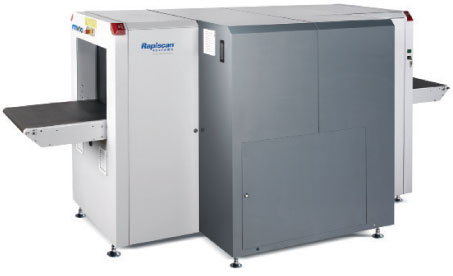“Through the use of the MVXi, passengers fly more securely and the system’s fast throughput means shorter queues, fewer delays and less hassle for passengers, airports and airlines,” said Stephen Hogan, director government affairs, Europe, Rapiscan Systems.
The MVXi is able to scan an object with high and low level X-rays and compare the results, making it possible to calculate an object’s (a material’s) atomic number. Scanning an object from various angles also helps to determine the volume of an object. Both factors help to determine whether material is potentially a threat.
Currently, Rapiscan Systems (MVXi) and Smiths Detection (aTiX) are the only companies in the market place providing this technology at the checkpoint. Further, Rapiscan recently received The Queen’s Award for Enterprise, recognising its growth in Europe, Middle East and Africa.

Hogan: “In the UK, the Department for Transport is on course to adopt multiview X-ray machines as the standard equipment for screening cabin baggage.”
EU and US demand
There will be a number of trials and trial phases for MVXi to be held at an airport within the Manchester Airports Group – Manchester, East Midlands, Bournemouth and Humberside – which are expected to begin in the next couple of months. The initial scope of the first phase of MVXi trials is to test and assess the different operational configurations, while the Department for Transport (DfT) continues to develop its final standards for the use of MVXi at checkpoints.
“In the UK, DfT is on course to adopt multiview X-ray machines as the standard equipment for screening cabin baggage. The MVXi has received a very positive response from potential airport customers due to its lightweight design, small footprint and low energy consumption in comparison to its nearest rival,” said Hogan.
He expects the strongest demand for the multiview checkpoint machines to initially come from Europe and the US, where regulators are moving towards the adoption of standards for advanced cabin baggage scanning. Also, airports are seeking more advanced solutions to increase throughput and better manage liquid and other IED threat detection.
“We are working very closely with our customers and EU, US and international regulators to provide the best solutions to meet the threats of today and tomorrow. Both the EU and US are focused on liquid and other IED threats. As restrictions – such as those on the carriage of liquids – are introduced, airports are relying on technology manufacturers, such as Rapiscan, to provide cost effective and efficient solutions that both manage the threat and mitigate the impact for passengers and the operators business,” said Hogan.
So far, Rapiscan has received a significant order from Manchester Airport for the MVXi and is in discussions with a number of UK and European airports.
Continually evolving technology
apiscan Systems invests 15% of its annual turnover in researching and developing the next generation of aviation security technologies. While MVXi is a step forward for checkpoint security, Hogan believes it is by no means the ultimate solution. According to Hogan, it is unrealistic to expect multiview X-ray machines to be 100% accurate as, although achievable, the resultant false alarm rate would be unacceptably high.
He said: “While threats continue to evolve and standards continue to increase Rapiscan will continue to develop new and better products for our customers. During 2008, we will begin field trials of our latest technology – the RTT.”
A high speed CT machine, the RTT is capable of providing EU Standard 3 hold baggage screening (HBS) for both HBS and checkpoint operations. For HBS, the RTT will provide Standard 3 screening at level 1, while at security checkpoints the RTT would provide the ultimate answer to liquid and IED threats.







